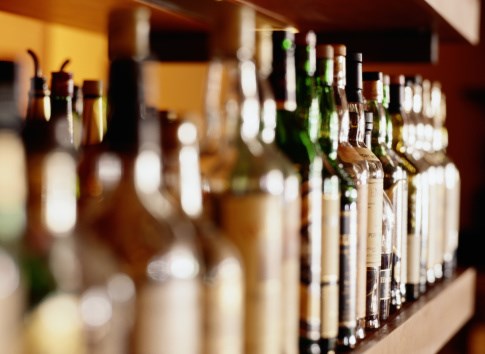While many British Columbians favour picking up a six-pack of beer or a bottle wine at their neighbourhood grocery store, some rural stores that sell alcohol and food say it might not be the smartest economic move.
There’s not much money in it for vendors and selling alcohol through grocery outlets could drive liquor stores out of business, said Lauren Phaeton, who owns Pier 66 Grocery and Liquor Store at Cowichan Bay. Hers is one of a handful of rural agency stores, which have special permission to sell groceries and liquor supplied by the B.C. government’s Liquor Distribution Branch.
“We’re very different than a regular grocery store — it’s not even comparable,” Phaeton said Tuesday after the provincial government announced it is seriously weighing changing B.C.’s liquor laws to permit alcohol sales at grocery stores.
Parliamentary secretary for liquor policy reform John Yap said up to 80 per cent of people responding to the government’s on-going liquor policy review put selling alcohol in grocery stores at the top of their wish list.
But there’s precious little profit in selling government-controlled alcohol, anymore than there’s profit in selling lottery tickets or cigarettes, Phaeton said. Private liquor stores make money “because they have a completely different structure — [at Pier 66] the markup isn’t there.”
Only the big groceries will be able to afford to sell government alcohol, she said. “If Safeway, Superstore or Costco carries [liquor], there will not be any small liquor stores left.”
Phaeton serves customers who don’t want to drive to a much larger private retailer up the road. Her customers include those who pick up provisions in Cowichan Bay.
“It’s a big challenge to me locally,” said Phaeton of her competition. She said her business is kept afloat by the volume of liquor she sells to boaters, fishermen, and nearby residents and visitors who are on foot.
Matthew Morgan said he doesn’t expect the proposal to have much impact on his business. But then, he manages the Corner Store, one of two rural liquor and grocery stores on Galiano Island where there are no larger grocery outlets.
Having liquor on store shelves helps bring in customers who get most of their groceries at big box retailers in Greater Victoria, he said.
“Then they get off work and they’re going to a dinner party — they’ll buy a bottle of wine, a loaf a bread, some cream and suddenly the total of their purchase is $50 or $60.”
Selling alcohol in grocery stores is “attempting to solve a problem that doesn’t really exist,” said Stephen Harris, executive director of the B.C. Private Liquor Store Association.
“There’s no lack of convenience, no lack of access to liquor in this province.”
In Greater Victoria, 96.4 per cent of grocery stores have a liquor store on the same property or within 20 metres, Harris said.
Allowing grocery stores to sell alcohol “would kill the private liquor industry that this government asked to be created. … They literally came to us and said, ‘Private industry can you fill the gap because we want to get out of the liquor business,’ ” Harris said.
Meanwhile, Ontario Premier Kathleen Wynne said Tuesday that her government will not allow corner stores and groceries to sell beer and wine.
The Ontario Convenience Stores Association — which includes 7-Eleven, Mac’s, Petro-Canada, Imperial Oil and Canadian Tire — wants the law changed so they can sell local wines and craft beers. Wynne said her government believes the Liquor Control Branch of Ontario is more socially responsible when it comes to keeping alcohol out of the hands of minors than corner stores would be.
B.C. residents have until midnight Thursday to weigh in on the proposal at the B.C. Liquor Policy Review website, engage.gov.bc.ca/ liquorpolicyreview.
— With a file from The Canadian Press



